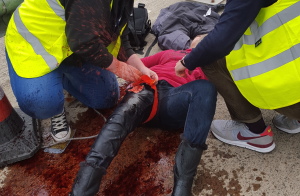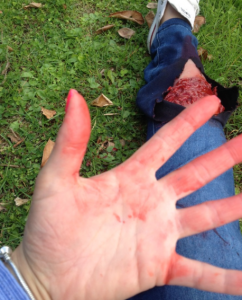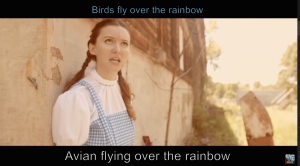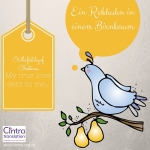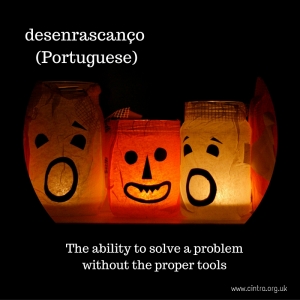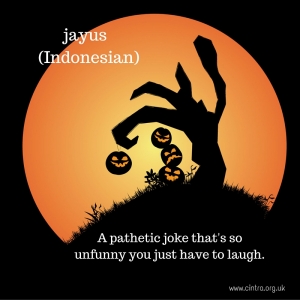Archives for Translation

Did you know that today is International Romani Day?
Since the beginning of the ‘90s, the 8th of April has been the day to celebrate and promote traditional Roma culture and to raise awareness of the challenges and difficulties that Romani people still face today due to discrimination.
A brief history
Romani people are Europe’s largest ethnic minority and they live scattered in several countries, such as Bulgaria, Slovakia, Romania, Spain, Germany and Hungary. Their story is the that of endless travels as various Romani groups arrived in several waves throughout the centuries to Europe from the area that’s Pakistan and India today. While on the way, traditionally they were trading various goods and animals, or worked as craftsmen, entertainers or blacksmiths. Today most Romani people are settled and gave up the travelling lifestyle.
The language
Romani belongs to the Indo-Aryan language family together with Hindustani, Bengali and Punjabi and according to the latest estimates, only 5-6 million people speak it. In fact, due to the low number of speakers, lack of Romani learning materials in schools, racial discrimination and other sociolinguistic variables, UNESCO classified Romani as an “endangered” language.
Some argue that Romani is a set of dialects or even a set of closely-related languages. Romani people actually belong to 10-12 smaller groups. Partly due to this fact, their geographical scatteredness and the language’s contact with the host countries’ languages, there are several distinct variants.
Interpreting for Romani speakers
It is important to know that Romani has many dialects as booking the wrong interpreter might not be very productive. As a first step, always find out where the Romani speaker, who will require interpreting, is originally from as you will need an interpreter who is from the same country.
“It’s not as simple as just contacting the interpreter and checking their availability,” Ursula, our Bookings Manager explains. “Depending on the type of assignment, we need to get the interpreter/client/customer on the telephone or exchange written texts to check they can understand each other or the material first.”
***
Do you have any questions about the Romani language or interpreting for Romani speakers? Get in touch with our Bookings Team today on 01223 346870 or at booking@cintra.org.uk and they will be happy to answer all your questions.
Cintra is like a machine with many interconnected and intricate pieces that have to align perfectly so that we can provide a great service to our customers. One part of this machine is, of course, our highly experienced and trained interpreters who are out there in the world, helping you communicate and make sure you can get your message across. However, out of public view there is a whole team of busy Bookings Coordinators who make sure that the right interpreters get to you at the right time, and help that Cintra machine stay well-oiled and run smoothly.
Today we’ve caught up with Bookings Team Manager Ursula Fairhurst to ask her about what her team do and how they can help you. …read more
We are happy to announce our next Diploma in Police Interpreting course in Warwick!

Are you bilingual, have excellent communication skills and have been thinking of becoming a police interpreter? If you’ve been dreaming of becoming an interpreter in the criminal justice system, now is the time to make those dreams come true, with Cintra’s Diploma in Police Interpreting preparatory course. …read more
 I love March. There is something about it that makes it one of the most positive months of the year for me. It marks the end of winter and beginning of spring and fills me with fresh enthusiasm about that lies ahead. (And as you’ve probably already heard – we have got an amazing year to look forward to!)
I love March. There is something about it that makes it one of the most positive months of the year for me. It marks the end of winter and beginning of spring and fills me with fresh enthusiasm about that lies ahead. (And as you’ve probably already heard – we have got an amazing year to look forward to!)
On a more personal level, it is also a time when I reconnect with my Bulgarian roots, and any expat will tell you just how much this means when you live abroad.
Every first of March in Bulgaria we celebrate Baba Marta Day. This is a centuries-old pagan tradition celebrating the coming of spring when people give each other a martenitsa to wish each other good health and prosperity for the year ahead. Martenitsas are made of white and red wool and are either in the form of a wrist band, or a little decoration to be attached to the clothes, traditionally in the form a boy and girl called Pizho and Penda. Martenitsas are to be worn until you see a stork – they spend the winter months in Africa and return to their nests in Bulgaria in March. The martenitsa is then taken off and attached to a blossoming tree. Yes, it gives the local councils a job clearing up afterwards, but for the joy it brings people – I’d say it’s money well spent!
At Cintra we want to share the joy of March with you too, so we’ve decided to offer you a 20% discount on translation projects with Central and Eastern European languages in March. Just contact our Translations Department and quote BABAMARTA16 to claim your discount. We will also send you a martenitsa with your completed translation!
I’m Svetlana, Translation Manager at Cintra Translation and a native Bulgarian living here in Cambridge.
Keen on linguistics for as long as I can remember myself (I used to steal my sister’s French textbook when I was little and tried to ‘read’ it); interested in psychology; love a good story (book, film or play), Indie rock, a good meal and a glass of red wine.
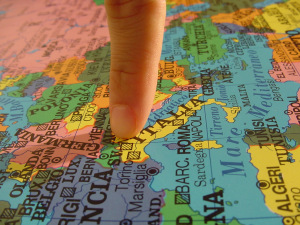 “When you’re localising your app for users around the world,“ says John Harper, Managing Director of specialist app marketing agency App Shine and today’s guest blogger, “don’t disappoint your customers by just translating your app store description. It’s vital to translate the app itself!”
“When you’re localising your app for users around the world,“ says John Harper, Managing Director of specialist app marketing agency App Shine and today’s guest blogger, “don’t disappoint your customers by just translating your app store description. It’s vital to translate the app itself!”
 I come across a lot of clients with different requirements, whether it’s for app development or marketing, looking to take over the world. In this article I’ll focus on the app development and localisation side mainly: the most important do’s and don’ts.
I come across a lot of clients with different requirements, whether it’s for app development or marketing, looking to take over the world. In this article I’ll focus on the app development and localisation side mainly: the most important do’s and don’ts.
When they have an idea for an app, many often think of execution in the context of their resident country. You conceptualise, design and create a fantastic, hopefully successful, app that sees fast success
And then it comes time to expand. You’ve got a strong user base in this country, you’ve reached the majority share of the target market here and you need new roaming grounds as you scale.
So you release your app into the app stores for other countries. You may even translate and localise your app store title, keywords and description to improve download numbers.
And yet your download numbers barely increase, your user retention goes down and your app store reviews look like a herd of angry elephants have stampeded through. How can this be?
The reality is, that if you’re going to maximise the potential for your app to become successful worldwide, there’s a lot to consider if you’re going to label your app as truly ‘global’.
Translating app store metadata is just the start
Translating the app store metadata for your app simply isn’t enough. If anything it can actually be harmful to your app’s reputation. If your first language is German, imagine being led to an app via the metadata, but the description and title are still in the original French. You’ll simply avoid it, right? – unless you’re looking to practise your French.
Now imagine seeing this same app, but instead the title and description are in English. You download the app and the whole thing is in German – the main menu, the tutorials, the settings. Pissed off? That tends to be what happens. And that’s why, if you want to avoid frustrating your customers, you need to consider translating and localising the app content too!
In the very first app we created – Rize – we made exactly that mistake. We only translated the app store details, leaving the content in English. Although we did find an increase in global downloads, we also saw a decrease in user retention, and no increase at all in revenue. So, if we look away from the vanity metrics, we actually didn’t do well from this decision.
Small improvements to user experience make a big difference
A lot of research has gone into seeing how the human-computer interaction principles vary between countries. I bring good news – much of the research indicates that usability guidelines stay the same across the globe, with only subtle changes from country to country. But this doesn’t mean you can ignore the user experience or design of your app when going global. If you’re looking to truly take over globally in your app niche then you need to prepare. Here are four steps I’d recommend you can take to understand the subtle usability and design requirements for your app in other countries.
1: Look at the language of the countries you’re targeting and talk to those who speak the language to understand if there will be any simple formatting requirements. Some languages need more character spaces than English, others need fewer, for example.
2: Do your research with people who use apps in your target markets. Get them to test either your app or a different app from your country. Ask how they’d make it different to suit how they would intuitively use an app. If you can, get some feedback from other app designers in that country.
3: Choose just a few countries to expand this work to. Don’t blow your whole budget on making this work right away for you by doing this for every single country worldwide – unless you have a lot of money to spend on design and user interface.
4: Remember there are many parts of your app to consider translating – if your app has a search functionality for example.
To sum up: if you’re still at the early stages with localising your app, decide on a handful of countries that you would like to expand to once you’ve got significant traction in your first country. Start as soon as possible to talk to people from these countries, trying to understand their expectations. Find yourself a good translation partner and build translation in at the design stage, so you’re prepared when you expand and localise.
If you already have an app out there, it’s not too late. I’d say focus on the language barrier first, and then move onto improving the user experience.
Designing an app for a range of countries can be an undertaking, but if you prepare well then you’ll do well.
And to re-iterate, don’t just translate your app store description without translating the app, or you’ll get a slap on the wrist from me!
Map image credit: Luca at free images.com
 Cintra guest blogger John Harper is Managing Director of specialist app marketing agency App Shine. Find out more at www.appshinemarketing.com
Cintra guest blogger John Harper is Managing Director of specialist app marketing agency App Shine. Find out more at www.appshinemarketing.com
Talk to us about localising your app!
How do clients use our translation services in the real world?
Meet Alistair Hollington, Managing Director of Lazarus Training. This Essex-based company has a core team of 24 trainers whose focus is providing practical, hands-on safety and first aid training. In line with his background as an Army medic, Alistair’s company specialises in extreme training – offering courses to close protection details – that’s bodyguards to you and me – as well as care providers; trauma and hostile environment training alongside paediatric first aid.
Clients include small and medium businesses and large corporates, as well as what Alistair refers to simply as law enforcement agencies. (“Can’t say anything else about them,” he hints.) Lazarus Training are well known in media circles too. On-screen credits include work as consultants to the BBC’s hit programmes Top Gear (pictured below) and Trust Me, I’m a Doctor.
Over the last 18 months Alistair has extended the company’s client-base overseas, running bespoke courses in very different environments, from the Czech Republic to Lebanon by way of Sudan. We support that growth, providing translations into French, German, Czech, Arabic and Farsi.
We support Lazarus Training’s international expansion with expert translations of key training materials.
I’m Anthony Gray, Cintra Translations’ Business Development Manager.
I asked Alistair why he approached us in the first place:
Alistair: I wanted a safety net. We’re a young company and expanded abroad because a UK client asked us to train their teams in France, Germany and the Czech Republic. As we work in English, they asked us for a crib sheet of key terms they could translate and hand out to their staff as part of the training. Unfortunately, our client used random staff members to translate, and they were translating the words literally. That really wasn’t going well for us in training sessions. When I realised our image was suffering and that we needed a safety net, I looked for help from a professional translation agency.
Language stops being an issue and Lazarus can be more effective at what we do.
Anthony: How much of a difference has involving professional translators made?
Alistair: In the first few interactions we had with Cintra, you gave me confidence. And as soon as you supplied us with that first spreadsheet with all the proper terms translated, we could see that in every case the new wording was working.
We’re experts at what we do, but we don’t speak multiple languages, so we train in English. We do understand that can be an issue. For example, when we’re working with factory hands in the Czech Republic, we’re aware of the sort of reaction we’d get if we walked onto a shop floor in Essex and started giving the workers emergency resuscitation instructions in Czech!
We do have a local English-speaker working with us, but communicating can still be a challenge. The materials Cintra provide take the edge off it. The language stops being an issue and we can be more effective at what we’re doing. My client’s happier, basically.
Anthony: How do your trainers use the material we translate for you?
Alistair: Trainees get a crib sheet. And we include the English terms and their local translations in our PowerPoint presentations. (We do most of our work in the field, but there’s always a bit of classroom learning!)
Cintra also give us help with pronunciation, and that’s helping the Lazarus team learn some useful words and important medical terms in the local languages. Everyone at Lazarus has a background in the emergency services or the armed forces, so we all understand how important it is to communicate clearly in crisis situations – even when we’re just simulating emergencies.
Anthony: What are your plans for the future?
Alistair: We’re running courses in Beirut in Lebanon early in 2016, and then I’m off to Sudan. As far as the business goes, I aim to keep my clients happy and sign them up for more!
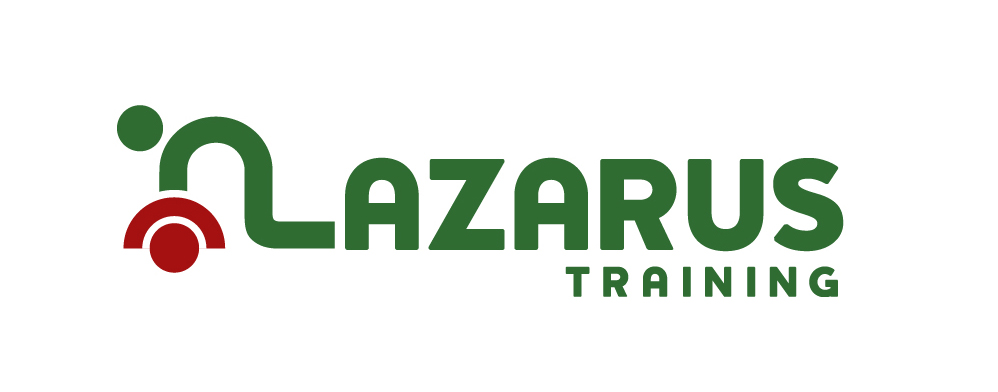 Find out more about Lazarus Training at www.lazarustraining.co.uk
Find out more about Lazarus Training at www.lazarustraining.co.uk
 Google Translate Sings creator Malinda Kathleen Reese caused a sensation in 2014 with her YouTube parody of Let It Go, the hit song from Disney’s Frozen. If you’ve seen the video, you’ll remember that Malinda Kathleen, Vassar student and quite a voice herself, put the lyrics through what she describes as “several layers of Google Translate”, coming up with a hilarious gobbledygook version that’s now been viewed close to eight million times. Parodies of other Disney anthems followed, and now nearly three years later, Malinda’s recorded 27 videos under the Google Translate Sings banner.
Google Translate Sings creator Malinda Kathleen Reese caused a sensation in 2014 with her YouTube parody of Let It Go, the hit song from Disney’s Frozen. If you’ve seen the video, you’ll remember that Malinda Kathleen, Vassar student and quite a voice herself, put the lyrics through what she describes as “several layers of Google Translate”, coming up with a hilarious gobbledygook version that’s now been viewed close to eight million times. Parodies of other Disney anthems followed, and now nearly three years later, Malinda’s recorded 27 videos under the Google Translate Sings banner.
There’s a lot there for a translation company committed to using human intelligence to smile about, and as it’s that time of the year, we thought we’d share our Google Translate Sings chart toppers with you.
All I Want for Christmas has to be our festive favourite. We all know that Mariah Carey doesn’t want gifts: she wants YOU. In the Google Translate Sings version, Malinda gets ducks under the tree and hangs up her tights instead of a stocking. You get the idea. Enjoy the performance.
What happens when Google Translate Sings Cinderella? A Dream is a Wish Your Heart Makes turns into a nightmare, that’s what.
Christmas wouldn’t be Christmas without The Wizard of Oz. Are those really avians flying over the rainbow?
Another irresistible seasonal showstopper in this translation from the Frozen songbook: Do You Want to Build a Snow Male?
How we cackled at the Google Translate Sings mechanical version of Defying Gravity from hit musical Wicked.
Google Translate Sings’ repertoire of parodied pop hits is pretty democratic. Taylor Swift isn’t immune from the treatment, and One Direction probably get what they deserve. Our favourite pop parody has to be Malinda’s version of Miley Cyrus’s controversial Wrecking Ball performance.
As Google Translate Sings says: “Enjoy the silliness!”
 UK consumers will spend around £400 million celebrating Hallowe’en this weekend. American Trick or Treaters are set to spend close to $7 billion on sweets, costumes and party paraphernalia, celebrating what’s become the western world’s second biggest party of the year after New Year’s Eve.
UK consumers will spend around £400 million celebrating Hallowe’en this weekend. American Trick or Treaters are set to spend close to $7 billion on sweets, costumes and party paraphernalia, celebrating what’s become the western world’s second biggest party of the year after New Year’s Eve.
As a chief exec I have to admire how retailers have driven the growth of the sector: in Britain alone, up by a whopping 3,000% from sales of around £12 million in 2001. As a dad though, my response to all this commercialisation is predictably unprintable. In the translation business, we love what we call ‘untranslatables’, and this week, I’m treasuring two that express the spirit (excuse the pun) of Halloween as lived in our house.
I might stop at one of the piles of pumpkins that have popped up on all routes into Cambridge, but then again, I’ll be in a rush, my son’s really too young to carve one and who’s got the time or the proper tools to gouge out all that hard flesh anyway? So, it’ll be the usual last minute improvisation on ghoulish décor at our place. The same will go for costumes. What’s wrong with a paper plate mask and an old sheet over your jumper and wellies? My son won’t be impressed, but the Portuguese admire and even have a word for my approach – desenrascanço; clumsily expressed in English as ‘the skill of improvising a solution from the materials at hand.’
The Trick or Treating bit demands a supply of good humour even where good jokes are in short supply. Thank you to the Indonesians, for coining one short word to express the particular fun of a truly pathetic joke, so excruciatingly told you can’t help but laugh. That would be a jayus.
I expect to shell out many handfuls of sweets in return for quite a few lame jokes before the weekend is out. And so I present my own very best jayus, saved especially for just such an occasion.
Did you hear about the wooden car with the wooden engine? It wooden go!
Have a great Halloween!

I’m Jerry Froggett, Chief Executive here at Cintra Translation.
High quality. Highly professional.
That would be my team!
To talk to us, call +44 (0)1223 346870
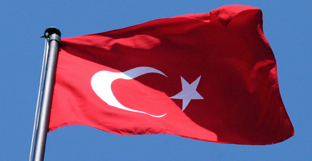 Hi, I’m Serap and I am DPSI LAW qualified Turkish interpreter. I live in the UK and work regularly for Cintra, interpreting and translating Turkish to English and vice versa. I like and enjoy my job – let me give you an idea of a typical day in my working life.
Hi, I’m Serap and I am DPSI LAW qualified Turkish interpreter. I live in the UK and work regularly for Cintra, interpreting and translating Turkish to English and vice versa. I like and enjoy my job – let me give you an idea of a typical day in my working life.
My busiest working day is usually a Sunday, and this weekend was no exception. I’m a qualified police interpreter and also work for healthcare trusts, so although we were going out for Sunday lunch with family, I’m always prepared to go to a police station or hospital at short notice. We take two cars, so my husband doesn’t get stranded. And I keep an overnight bag in the boot. Once, after interpreting for the police over four days and nights, a court usher asked me why I wasn’t wearing a suit. Now I take clothes for interpreting in any situation – police stations, courts, hospital waiting rooms and wards, people’s homes and sadly, even mortuaries.
This Sunday the call from Cintra – a police job – came while we were still at home, so it was easy to for us to go into the routine that gets me on my way as quickly as possible. Cintra works with forces across the East of England and the Midlands, so while my husband made me coffee and a sandwich for the journey, I found the police station on my sat nav. My average ‘commute’ time is 2.5 hours, and I keep in touch with Cintra by Bluetooth, so if I’m delayed the Cintra manager will let the client know. That lets me focus on the job, and I like it that Cintra know all their interpreters by name. To some agencies interpreters are just a number – and I’m not so keen on that!
Once I get to the police station I find out if I’m interpreting for a suspect, a witness or perhaps the victim of a crime. The work is highly confidential, so, sorry, I won’t be telling any true crime stories about this weekend’s particular case! The commonest are drink driving and sexual assault, but I have interpreted in a double murder investigation, and that was quite chilling, believe me.
It’s the interpreter’s job to translate everything the Turkish and English speakers say when we’re in an interview room. Even if a suspect or witness says in Turkish: ‘Don’t translate this.’ Or if the police officers talk about the weather, I translate the chit chat: everyone needs to know what’s going on, just as if the interview was all in English.
And I have to translate exactly what is said. Sometimes, because of the different ways our languages work, or even because of the educational level of the speaker, the words we translate sometimes don’t make much sense to the hearer. For example, Turkish has no pronouns equivalent to he and she: we just use it. So a suspect or a witness might tell me in Turkish: ‘It was talking to me and then it ran up and punched me.’
If I was translating this into English in a social situation, I could make assumptions about the two different people the speaker is referring to. But in a police interview, the interpreter can’t make assumptions. I have to say: ‘He or she was talking to me and another he or she punched me.’ When the police officers look at me like I’m crazy, I suggest they ask me to ask the Turkish speaker to explain for themselves in more detail.
We got through this weekend’s interview quite quickly, and although I missed Sunday lunch, I did get home in time to put my daughter to bed and check with the child minder for after school tomorrow. I’ve been booked to interpret for a health visitor who’s weighing a two-week-old baby. I saw the mum when she was pregnant, so it will be nice to see the new-born – and find out if it’s a he or a she: I’m pretty certain this one won’t be an it!
 To work with us here at Cintra, all interpreters and translators must be trained and qualified as Serap is to the required professional standards. Our linguists are assessed and security-vetted as part of the registration process, and are required to follow our Code of Conduct which stresses confidentiality and impartiality.
To work with us here at Cintra, all interpreters and translators must be trained and qualified as Serap is to the required professional standards. Our linguists are assessed and security-vetted as part of the registration process, and are required to follow our Code of Conduct which stresses confidentiality and impartiality.
Cintra is one of the few agencies with its own in-house interpreter training and Diploma in Public Services in Interpreting exam centre. Through our specially devised courses, foreign language speakers who are new to interpreting can be trained and assessed and start working, before obtaining further qualifications, including the Diploma in Public Service Interpreting.
 Speculation about the role of the Scottish National Party after Election Day on 7 May has got me thinking about how a higher profile for Scottish MPs at Westminster might just benefit the translation and interpreting sector. For a start, we might find some new untranslatables making an appearance:Movie A Dog’s Purpose (2017)
Speculation about the role of the Scottish National Party after Election Day on 7 May has got me thinking about how a higher profile for Scottish MPs at Westminster might just benefit the translation and interpreting sector. For a start, we might find some new untranslatables making an appearance:Movie A Dog’s Purpose (2017)
Dreich is the Scots shorthand for dark and dreary days of bleak, cold and depressing rain. That should work well for English and Welsh voters too! Smirring is an altogether gentler rain although responsible for some real bad hair days. Most women could make good use of a (printable) word to describe that fine, drizzling wet you can’t quite see, that comes with a powerful frizz action.
When you give something a shuggle you shake it about, or loosen it up a bit. Perhaps a new, post-election coinage might encapsulate politicians shuggling along together in coalition?
For all those voters who keep changing their minds, there’s swithering, which is almost onomatopoeic. And lastly, there’s my particular favourite: wabbit, a unique mix of tired and exhausted, defined by a Glaswegian friend as feeling ironed to the bed sheets. A fair few politicians might find that a useful term come May 8.
So, I’m looking forward to an injection of vividly descriptive new words for our translators to get their heads round. Can we also anticipate a run on our localisation services? After all, whatever the precise outcome of the election, it’s a fair bet that many of the new MPs, regardless of party, will have a worldview and familiar cultural references very different from the current Westminster bubble.
As someone who pays close attention to just how connected politicians are to the electorate, I can’t help wondering where the SNP leader Nicola Sturgeon gets her messages? In Scotland, when people talk of getting the messages, they’re not talking focus groups and hard-working families. No, in Glasgow, Edinburgh, St Andrews and Fort William, getting the messages means you’re just popping off to Tesco or the Co-op, not taking in the kind of electioneering designed to persuade us that our politicians really do know the price of a pint of milk!
This carefully localised message was crafted for a British audience by me, Tess Wright, Cintra Translation’s CEO. Our translators and interpreters are experts in localising your marketing materials wherever in the world you do business.
Photo Credit: Thank you to pjohnkeane via Compfight cc








